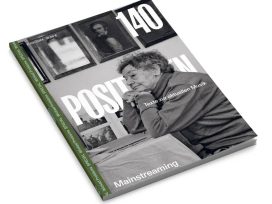At the heart of the thought of American philosopher Nancy Bauer is the troubled relationship between philosophy and feminism. Put differently, Bauer is interested in exploring the possibilities for a genuinely philosophical feminism, while at the same time aiming at paving the way for a feminist critique of the philosophical tradition that is transformative, rather than dismissive, of the intellectual discipline as such. Instead of simply arguing in favour of feminist philosophy, where the issue of the value of feminism for philosophy and vice versa is settled in advance, Bauer works on the borders of feminism and philosophy, where difficulties in bringing the two enterprises together abound, but great intellectual rewards await in the case of success. In Bauer’s work, this ambition manifests itself in a way of doing philosophy that ties the abstractions of philosophy to concerns of everyday life, where French writer, philosopher and feminist Simone de Beauvoir serves as a great source of inspiration. Writing about the philosophy of Beauvoir and its connections to the thought of Descartes, Hegel, and Sartre, Bauer received her PhD in philosophy from Harvard University in 1997.

Scepticism and the ordinary
The work of Beauvoir is also the main topic of our conversation, ranging from questions about what philosophy is, also touching upon the relationship between philosophy and politics, to subjects of critique and the importance of scepticism for feminism. A central concern which nonetheless to some degree remains implicit is the sceptical legacy of seventeenth century French rationalist René Descartes. What is the image of philosophy proposed by scepticism and what are its implications for the prospect of a feminist philosophy? Descartes is generally acknowledged to be the founder of modern philosophy. In his work, the authority of reason is relocated from the great schools of scholasticism to the individual mind. Human subjectivity thus becomes the foundation of modern thought. The emphasis of the cogito as the touchstone of philosophical authority is also fundamental in the radical doubt that characterizes the thought of Descartes. Through his intervention, philosophy turns into an enterprise marked by scepticism, where the notion of the origin of thought becomes entwined with the image of a philosopher starting out from a position of metaphysical loneliness and isolation. Yet, the sceptical doubt of Descartes remains purely theoretical, in effect separating the realm where the doubting takes place from everyday life. For the latter dimension of human existence, Descartes adopts an entirely different guiding principle, rather asserting that he will “follow even the most doubtful of opinions […] with no less constancy than if they had been quite certain.”
We find a similar understanding of the relationship between philosophy and the ordinary in the work of Scottish sceptic and empiricist David Hume. The vast differences between his thought and that of Descartes notwithstanding, Hume, too, imagines there to be a gulf between the realm of metaphysical separation where philosophical thinking can get off the ground and ordinary life where human interaction takes place. In a few lines towards the end of the first part of A Treatise of Human Nature, Hume gives voice to the feelings of exposure induced by his own thought, declaring himself to be “affrighted and confounded with that forlorn solitude” created by his philosophy, making him feel like “some strange uncouth monster, who not being able to mingle and unite in society, has been expell’d all human commerce, and left utterly abandon’d and disconsolate.” While Hume finds himself in a position of insurmountable isolation deeply marked by conflicts between humans when it comes to the domains of philosophy, it is nonetheless the people he encounters in ordinary life that distract him from his paralyzing state of mind: “I dine, I play a game of back-gammon, I converse, and am merry with my friends […] Here then I find myself absolutely and necessarily determin’d to live, and talk, and act like other people in the common affairs of life.”Thus, both Descartes and Hume draw a sharp line between philosophy and everyday life, between the space where scepticism is given free rein, exposing human beings to the most vertiginous of experiences on the one hand, and the realm where it no longer holds any power on the other. In the thought of ordinary language philosopher Stanley Cavell, this distinction is reconsidered. Contra the epistemological scepticism concerning the outside world that marks the philosophical pursuits of Descartes and Hume, Cavell claims that it is scepticism with respect to other people that is more fundamental. This form of scepticism is characterized by the fact that it cannot be separated from ordinary life. There is no, he says, “everyday alternative to scepticism concerning other minds.” Scepticism thus becomes existential, rather than epistemological; a fundamental condition, rather than a state to be avoided or overcome. This also entails a shift with respect to the conception of the proper place of philosophy, from the solitude of the chamber to the exposed existence of the individual among other individuals.
Scepticism and feminism
What is the influence of this Cartesian legacy of scepticism and the concomitant notion of the nature of philosophy on the feminist theory that has developed during the second half of the twentieth century? In her book about Simone de Beauvoir, Bauer diagnoses contemporary feminist debates as being profoundly marked by scepticism: “The debate between essentialists and anti-essentialists now dominates feminist theory. It’s a sceptical debate over the question, to put it plainly, of whether, and in what sense, ‘women’ (whatever that term means) exist.” In this regard, feminists of today would appear to be confronted by the very same queries that puzzled Simone de Beauvoir, decades before this strand of thought grew strong at western universities: “It is hard to know any longer if women still exist, if they will always exist, if there should be women at all, what place they hold in this world, what place they should hold. […] But first, what is a woman?”
What would it mean to give an answer to this question? Without delving into the details of feminist debates concerning women’s subjectivity and the subject of feminism, I’d like to characterize these discussions as being defined by the scepticism that marks the thought of Descartes and Hume, where philosophy is separated from the ordinary. When the question is framed this way, there is a great risk that any affirmative answer to the question of what a woman is produces an essentialist notion of womanhood. Rejecting the idea of an identity among women on the other hand, produces another problem, since, in the next step of the argument, you are confronted by the issue of how to account for the realm of everyday life where women are subjected to discrimination and oppression, regardless of the ontological status of womanhood. In the thought of Bauer this surfaces as the major dilemma par excellence for anyone attempting to do feminist philosophy.
The problem for someone who wants to conduct an investigation into the nature of sex difference that is at once philosophical and feminist is to figure out how to do so without denying the social fact of sex difference. You have to be able at one and the same time to question what a woman is and to identify yourself as a woman – or, as the case may be, as a man. You have to operate simultaneously at the level of our ordinary concepts – the level, after all, on which feminism situates itself – and at the level of philosophy, where these ordinary concepts are put in question.
According to Bauer, the philosophy of Beauvoir constitutes a space where the distinction between philosophy and the ordinary is broken down. This feat is achieved through the fact that Beauvoir firmly ties her philosophical inquiry to her own identity, by having her answer to the question of what a woman is, be, “I, Simone de Beauvoir, am a woman” not in the sense that she considers herself to be an exemplary woman, but rather that she will refrain from making any claims of what it is to be woman that doesn’t resonate with her own ordinary experience of being one. Moreover, it’s important to stress that her investigation into the meaning of the fact of being a woman still remains within the purview of scepticism. In light of Cavell’s notion of a lived scepticism towards others, I thus take Bauer to claim that Beauvoir offers a mode of thinking that is philosophical and feminist at the same time, where philosophy and the ordinary no longer exclude one another and where an ordinary identity as a woman or a man is not in opposition to a (sceptic) inquiry, but rather could serve as ground for a critical project. Could feminism afford not taking an interest in this insight? Could philosophy?







